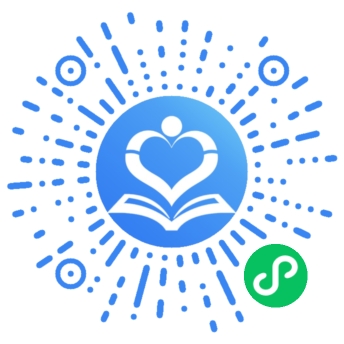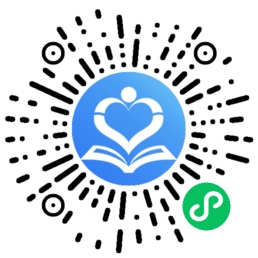中共党史专业介绍
中国共产党历史专业属于法学门类,政治学一级学科,该专业主要研究中国共产党的历史发展、理论政策与实践,探索中国共产党领导中国革命、建设、改革和党的建设的历史经验教训,揭示中国共产党执政规律、社会主义建设规律、人类社会发展规律。
英语单词分类 轻松记单词
people
英['piːpl] 美['piːpl]
"old people"
"there were at least 200 people in the audience"
"the Spanish people"
"his people have been farmers for generations"
"are your people still alive?"
"separate the warriors from the mass"
"power to the people"
"Stalin wanted to people the empty steppes"
"The plains are sparsely populated"
1.人,人们(通常用作person的复数)
people are men, women, and children.people is normally used as the plural ofperson, instead of 'persons'.
people的解释
e.g. Millions ofpeople have lost their homes.
数百万人流离失所。
e.g. ...thepeople of Angola.
安哥拉人
2.(与政府或上流社会相对的)人民,民众,大众
The people is sometimes used to refer to ordinary men and women, in contrast to the government or the upper classes.
e.g. ...the will of thepeople.
人民的意愿
e.g. ...a tremendous rift between thepeople and their leadership.
民众和领导层之间的巨大裂痕
3.一国人民;民族;种族
Apeople is all the men, women, and children of a particular country or race.
e.g. ...the native peoples of Central and South America...
中南美洲的土著民族
e.g. It's a triumph for the Americanpeople.
这是美国人民的胜利。
4.居住在;定居于
If a place or countryis peopled by a particular group of people, that group of people live there.
e.g. It was peopled by a fiercely independent race of peace-loving Buddhists.
那里住着一个与世隔绝的种族,人们都是爱好和平的佛教徒。
e.g. ...a small town peopled by lay workers and families.
普通工人和家庭居住的小镇
5.(某种类型的人)出现,存在,充斥于(故事或历史时期)
If something such as a story or a time in historyis peopled with people of a particular kind, those people occur or exist in it.
e.g. Grass's novels are peopled with outlandish characters...
格拉斯的小说里都是些稀奇古怪的人物。
e.g. British history of the 19th century is peopled by energetic reformers...
19世纪英国史上积极改革者层出不穷。
At least ten people were killed in the crash.
至少有十人在撞车事故中丧生。
There were a lot of people at the party.
有许多人参加聚会。
Many young people are out of work.
很多年轻人失业。
He doesn't care what people think of him.
他不在乎人们怎样看他。
She tends to annoy people.
她的举止往往惹人烦。
the French people
法国人
the native peoples of Siberia
西伯利亚本土民族
the life of the common people
普通人的生活
It was felt that the government was no longer in touch with the people.
人们觉得政府已脱离了民众。
a meeting with business people and bankers
与商界和银行界人士的会晤
These garments are intended for professional sports people.
这些服装是为专业运动员制作的。
The king urged his people to prepare for war.
国王呼吁臣民百姓准备作战。
I've had my people watching the house for a few days.
我让用人照看了几天房子。
I'm having people to dinner this evening.
今晚我在家里宴请客人。
She's spending the holidays with her people.
她正与家人一起度假。
She of all people should know the answer to that.
在所有的人中,唯有她最应知道那个问题的答案。
The town was peopled largely by workers from the car factory and their families.
这个镇上的居民大部分都是汽车厂的工人及其家属。
The ballroom was peopled with guests.
舞厅里满堂宾客。
Millions of people have lost their homes.
数百万人流离失所。
...the people of Angola.
安哥拉人
...the will of the people.
人民的意愿
...a tremendous rift between the people and their leadership.
民众和领导层之间的巨大裂痕
...the native peoples of Central and South America...
中南美洲的土著民族
It's a triumph for the American people.
这是美国人民的胜利。
It was peopled by a fiercely independent race of peace-loving Buddhists.
那里住着一个与世隔绝的种族,人们都是爱好和平的佛教徒。
...a small town peopled by lay workers and families.
普通工人和家庭居住的小镇
Grass's novels are peopled with outlandish characters...
格拉斯的小说里都是些稀奇古怪的人物。
British history of the 19th century is peopled by energetic reformers...
19世纪英国史上积极改革者层出不穷。
The meadow is peopled with wild flowers.
草地长满了野花。
A winter sky was peopled with stars.
冬天的夜空布满了星星。
This office is peopled with petty-minded bureaucrats.
这个办事处到处是心胸狭窄的官僚。
He believes the world is peopled with idiots.
他认为世上多白痴。
peoples in the World whom he likedshe had a particular love of the Poles.
出自:G. BrownThe Kamchatkans, a people of eastern Siberia.
出自:J. BarnesRobins..has peopled the garden with..nymphs and satyrs.
出自:Landscape交通
B:Let thepeople (off/ get off/ disembark from) the train before you get on.
让别人(先下/先下来/先下车)你再上去。
A:I see, that makes more sense, doesn’t it?
我知道。这样更合理,不是吗?
求职面试
B:What do you find frustrating in a work situation?
在工作中,什么事令你不高兴?
people的解释
A:Sometimes, the narrow-mindedpeople make me frustrated. /Minds that are not receptive to new ideas.
胸襟狭窄的人,有时使 我泄气。/不能接受新思想的那些人。
询问工作
people的反义词
A:What’s your job?
你做什么工作?
B:For now, I’m a student at the university.
目前, 我在大学里读书。
A:I thought you were working.
我以为你工作了。
B:Well, I work as a tour guide in the holidays.
哦,在假期我做导游。
A:That must be quite interesting.
那一定很有趣吧。
B:Yes, it is. I like meeting newpeople and it’s a good chance to practise my English.
是的,很有趣。我喜欢认识新人,而且这也是个练习英语的好机会。
误 She is a nice people.
正 She is a nice person.
析 people作“人”解时,是集合名词,不用于单数意义。
人们说米要涨价。误 The people say that the rice price will rise.
正 people say that the rice price will rise.
析 people泛指“人”时,不加定冠词。
Otherpeople don't take risks for the feeling of excitement but to achieve a goal.
其他人不是为了兴奋的感觉而冒险,而是为了实现一个目标。
2020江西省卷
people thought the virus spread fast.
人们认为病毒传播很快。
2020绵阳市卷
Thanks to thesepeople, that forest is now a park.
多亏了这些人,那片森林现在成了公园。
2020锦州市卷
83 percent of thepeople said Mrs. Robinson 's decision will influence grandparents in the American family.
83%的人说, 罗宾逊夫人的决定将影响美国家庭中的祖父母。
2016全国卷1
It doesn't require a new type of technology thatpeople aren't already familiar with.
它不需要人们还不熟悉的新型技术。
2019全国卷1
I don't know how manypeople would have done that; they would have listened to their agents or the studio powers.
我不知道有多少人会这么做;他们会听从经纪人或制片公司的意见。
2017全国卷2
In one study,people who ate meals in a blue room consumed 33 percent less than those in a yellow or red room.
在一项研究中, 在蓝色房间吃饭的人比在黄色或红色房间吃饭的人少吃33%的食物。
2015全国卷2
As long as there have been codes,people have tried to break them.
只要有密码, 人们就试图破解它们。
2016全国卷1
people tend to underestimate the time it takes to travel a familiar route.
人们往往会低估走一条熟悉的路线所需的时间。
2015英语二
Manypeople who work part-time jobs actually want full-time jobs.
很多做兼职的人其实都想做全职。
2015英语二
This is whypeople who work outside the home have better health.
这就是为什么在外工作的人身体更好。
2015英语二
上一个:following wind
下一个:folio
四川高考志愿填报方式:1、进入页面;2、修改密码;3、填报须知;4、查看个人基本信息;5、志愿类别选择;6、填写志愿和修改志愿;7、填写或修改志愿结束后,单击页面底部的[保存并提交]按钮,则所填写的志愿数据将得到保存,保存即表示该批次志愿已经提交。
高考成绩一般都会在考后15天左右公布,不过不同省份查询时间有所差别,具体以各省份发布时间为准。并且全国各省份高考成绩公布时间有所不同,不全在同一天,但绝大部分省市都集中在6月24日、6月25日两天公布高考成绩,有些省份会更早一点。
中国共产党历史专业属于法学门类,政治学一级学科,该专业主要研究中国共产党的历史发展、理论政策与实践,探索中国共产党领导中国革命、建设、改革和党的建设的历史经验教训,揭示中国共产党执政规律、社会主义建设规律、人类社会发展规律。
小学教育专业属于教育学门类、教育学一级学科,是我国教师教育体系的重要组成部分。小学教育专业坚持学高为师、身正为范。其主要培养德、智、体、美、劳全面发展,具备专业化的小学教师素养,能在小学及相关行业从事教育、教学和管理等方面工作的复合型人才。
钢琴伴奏作为一门中国普通高等学校的专科专业,属于文化艺术大类中的表演艺术类,修业年限为三年。该专业的目的是培养了解钢琴伴奏的基本理论知识和方法,具备较好的音乐创造能力,从事钢琴伴奏、艺术指导、钢琴演奏、教学辅导等工作的高素质技术技能人才。
影视多媒体技术专业是一门专科专业,属于新闻传播大类中的广播影视类。开设该专业的目的是培养全面发展,具有良好职业道德和人文素养,掌握影视多媒体技术基本知识和技能,具备影视后期制作、影视包装设计能力,从事影视编辑的高素质技术技能人才。
虚拟现实技术应用是一门互联网专业,属于电子与信息大类中的计算机类,基本修业年限为三年。专业主要研究仿真技术与三维计算机图形技术等方面基本知识和技能,具备虚拟现实软硬件平台设备搭建,从事虚拟现实、开发、调试等工作的高素质技术技能人才。
更多内容
关注微信小程序
学路英语小程序
 微信扫一扫,加入小程序
微信扫一扫,加入小程序
学路学习小程序
 微信扫一扫,加入小程序
微信扫一扫,加入小程序
学路高考小程序
 微信扫一扫,加入小程序
微信扫一扫,加入小程序
学路学习APP
 扫一扫,下载app
扫一扫,下载app